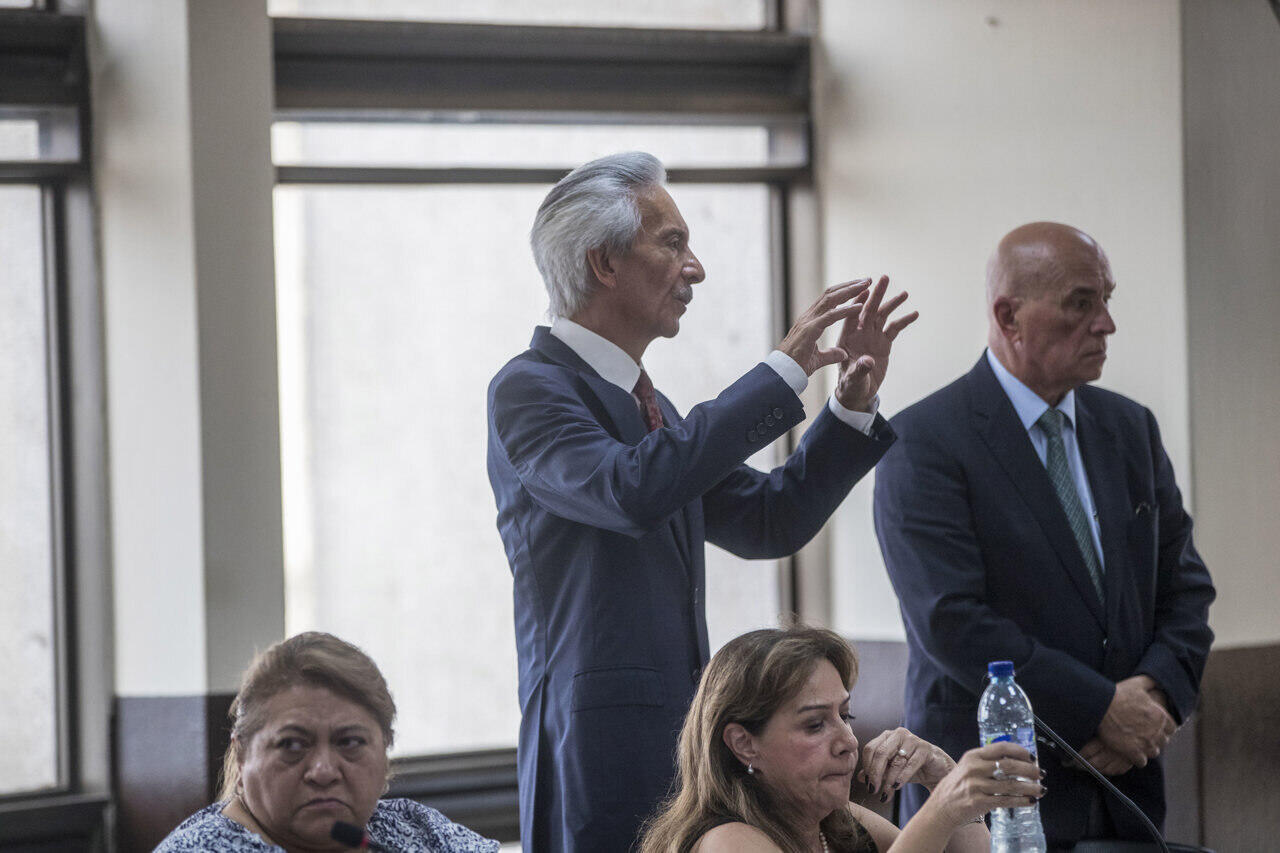First modification:
Journalist José Rubén Zamora Marroquín, one of the most critical of the government of President Alejandro Giammattei, is facing trial after nine months of being detained and accused of money laundering, blackmail and influence peddling.
Journalist José Zamora, 66, entered the Eighth Criminal Court, directed by Judge Oly González, and declared “in this trial they are going to sentence me.” The Guatemalan Public Ministry accuses him of money laundering among other crimes, but he claims to be a “political prisoner.”
Zamora was arrested on July 29, 2022, just five days after he issued strong criticisms of corruption against President Giammattei and his close circle. Zamora is the founder of El Periódico, a medium that stopped circulating in print since last December and 80% of its payroll was fired due to the economic problems that followed the capture of its director.
‘El Periódico’ has been one of the media most critical of the government and published more than 150 reports on corruption cases in the Giammattei administration, but the Guatemalan justice system affirms that it is not prosecuting Zamora as a journalist, but as a businessman
“The Court declares the oral and public debate open,” said Oly González when opening the process, which could even last a few weeks.
The Public Ministry shows as one of the main pieces of evidence against Zamora the witness Ronald García Navarijo, a former banker and acquaintance of the journalist, who assures that Zamora asked him to deposit $40,000 in the account of one of his companies and issue a check for the same amount. . If he did not do so, according to García, the journalist threatened to publish compromising information about him.
Zamora admitted that he handed over the money, but did not try to blackmail him. The Special Prosecutor’s Office Against Impunity, FECI, accuses the journalist of money laundering for not proving the origin of the money and could face up to 20 years in prison.

Zamora Marroquín’s defense questioned the methods used by the Prosecutor’s Office to obtain the telephone recordings in which the journalist allegedly refers to illegal money and talks with the banker. The Prosecutor’s Office gathered the evidence in 72 hours.
Zamora denounced that the trial will not be a fair process because his main witness was not accepted to testify on his behalf.
During the start of the trial, the journalist also denounced that last year he was detained with “abuse of force” at his home, but was interrupted by Judge González, who indicated that it was not his turn to testify.
González sentenced the former anti-corruption prosecutor Virginia Laparra last year for an administrative offense. Laparra led several investigations against criminal structures in western Guatemala.
Organizations insist on due process in the case of José Rubén Zamora
In February 2023, the Inter-American Press Association, IAPA, asked the President of Guatemala, Alejandro Giammattei, to urge the Public Ministry “to adhere to legality, transparency and due process” in the case against the journalist.
Michael Greenspon, president of the IAPA, sent a letter to Giammattei, denouncing alleged irregularities in the judicial process against Zamora.
“We alert about irregularities that we detected in the judicial process and that we made known in our conclusions. We then remarked, before the country’s authorities and the Public Ministry, that “the government must end legal and judicial harassment”, a situation that we continue to observe with the recent accusations against Zamora’s lawyers,” denounced the IAPA.

The agency added that “if Justice does not act independently and is only an instrument of other powers, it will end up inducing self-censorship in other media and journalists who investigate power.”
José Zamora has previously stated that the case against him was fabricated by President Alejandro Giammattei and Attorney General Consuelo Porras. Zamora’s case is relevant at a complex time for the press in Central America, with the exile of more than 100 journalists from Nicaragua and reports of espionage and persecution against journalists in El Salvador.
For this reason, various pro-press freedom organizations, journalists and writers in the region have spoken out against the trial and detention of Zamora. “We believe that the Guatemalan justice system has become the repressive arm that seeks to suffocate and strangle those who seek to tell the truth, those who investigate,” said Carolina Jiménez Sandoval, president of the Washington Office on Latin America, WOLA.
“We are concerned about the recent decision to investigate 8 journalists for reporting critically on the case of Chepe Zamora. The authorities must guarantee fair procedures and that any limitations on freedom of expression are legitimate, necessary and proportionate”, reported the United Nations Human Rights Council.
José Rubén Zamora denounced before journalists: “I am a political prisoner, I have been treated as such”, as reported @PlazaPublicaGT. “They have not managed to make the money that was taken from the Banco Industrial illegal. […] So they want to see how they turn dirty money into it.” “In this trial… pic.twitter.com/LIOllxNFqx
— The Lighthouse (@_elfaro_) May 2, 2023
The journalist was charged with a new charge: that of conspiring to obstruct justice. The journalist faces trial without defense attorneys. According to his son Ramón Zamora, some five lawyers abandoned his defense due to persecution or threats, while others refuse to take his case for fear of reprisals.
With EFE and local media





![[Img #74676]](https://thelatestnews.world/wp-content/uploads/2024/12/Laser-artificial-neuron-150x150.jpg)








